Why Nato is struggling to rebuild itself in an increasingly threatening world.
In the years after Nato was formed in 1949, its US and European members had a collective approach to defence with clear goals in common, largely built around the protection of western Europe against the Soviet Union.
Throughout this era, the US and Europe both relied on the stability of the international system by creating international cooperation on shared dilemmas.
This article is the opinion of the author, Amelia Hadfield, University of Surrey, and not necessarily that of the UK Defence Journal. If you would like to submit your own article on this topic or any other, please see our submission guidelines.
Fast forward more than 70 years, and there is now a ticking clock on reinventing the transatlantic alliance.
European security and US-led Nato security are no longer one and the same. Certainly, recent statements from US leaders that the US will prioritise empowering Europe to own responsibility for its own security has made for tough listening in Europe.
For some, this may be an overdue opportunity to fundamentally rework the transatlantic security relationship. For others, such statements are worryingly set against the backdrop of Trump’s pro-Russia stance, with Trump’s demands sounding sinister at best.
Nato secretary-general Mark Rutte recently outlined a need to “build a stronger, a fairer and more lethal NATO”. Global threats were creating a more dangerous world, he argued.
From its establishment by 12 states on April 4, 1949, until the end of the cold war era, Nato was focused on one big thing: deterring Soviet aggression. Ultimately, Nato had one job, one enemy, one threat, one theatre and one instrument of power.
It was a partnership that enabled the US to build and maintain a more permanent role in European security. This collective security plan prevented the US from falling back into isolationist foreign policies that it had held before the second world war
Arguably, US attitudes fluctuated throughout this era. Initially the country sought a temporary role in Nato, with limited military commitment. It also encouraged western European Nato members to take early and primary responsibility for defence.
However, the huge Soviet nuclear threat hardened US attitudes. And Nato came to be seen as key to the US’s overall ability to prevent a Soviet invasion of western Europe. Equally important was the role of the Marshall Plan, a massive post-war reconstruction plan for Europe, which (in conjunction with Nato) represented the US’s desire to work with European partners to both stabilise the region, and ensure democracy.
Through the decades that followed, the US saw Nato as a cornerstone of its foreign policy. It is important to remember that transactionality has always been an integral part of the transatlantic relationship, but it was never at the expense of the values that underpinned it, and indeed reinforced both US national and European regional interests in doing so.
Throughout the 1990s, and well into the 2000s, Nato clearly represented the US’s preferred method of maintaining its military presence in Europe (including US bases, weapons and troops stationed in member countries). The US drove the redefinition of post-cold war Nato, to include former Warsaw Pact countries including Poland, Hungary and the Czech Republic.
The question now is whether US leadership in Nato was focused so extensively on security of Europe and pushing back against the Soviets that for a long time the dilemma of who paid for what was essentially set aside.
Long overdue problems?
But two wake-up calls were to come. The first was the increasingly clear indications from US administrations from Barack Obama’s presidency onwards that the US was ill at ease with Nato as a whole, and it was unhappy with the lower financial commitment, than the US, coming from European members.
The second was in 2014, when Russia annexed Crimea. Unfortunately, the first warning sign by Obama was largely ignored; and when Russia invaded Crimea, Nato did not step up to push back against Putin’s expansionism.
Now, Nato finds itself once again in the crosshairs of US anger about funding, and with Trump furious at European defence spending levels, and determined to massively revise the transatlantic bargain.
Trump’s first administration put spending from European Nato members firmly on the table. His recent position is merely a continuation of that theme.
From the European perspective, the US was, and is, a key part of the collective security structure that has empowered European defence and deterrence, but possibly with an out-of-date funding model.
Trump, meanwhile, appears to see the US’s involvement as politically naïve. He seems to view Nato as strategically futile and defence spending imbalances as an indication that Nato is nothing more than a giant security racket.
What is stark is the reversal between the US having helped found Nato and as the leading nation backing of a rule-bound global system under international law and Trump’s preference to reject any responsibilities for global leadership and stability.
What has come as a shock to European members is not perhaps the demands regarding improving defence funding, but the abdication of US leadership and the threat to leave Nato completely, with no ongoing US responsibility to defend the world order.
The onus is now on European Nato members to make both serious and swift changes. Indications of far more serious financial commitments, including from Germany, are emerging. European defence spending overall increased by 11.7% over the last year to roughly €423.3 billion (£371 billion), representing ten years of consecutive regional growth.
Next steps include focusing on AI-led technologies, cheap drones, digital tech and improved commitments to joint projects. But the hardest task is also the most urgent. Namely, to avoid the chaos of a unilateral US withdrawal from Nato.
There’s a need to move the financial and military burden to Europe in a way agreeable to the US before the Nato summit in June. Discussions on how to achieve this need to cover everything from nuclear deterrence to challenges arising from the conflict in Ukraine.
Whether Rutte and European states can indeed preserve and maintain the collective security foundations on which Nato was first built remains to be seen. But, certainly, the current world situation is no less dangerous that the world in which Nato itself was first built.![]()
Amelia Hadfield, Head of Department of Politics, University of Surrey. This article is republished from The Conversation under a Creative Commons license. Read the original article.


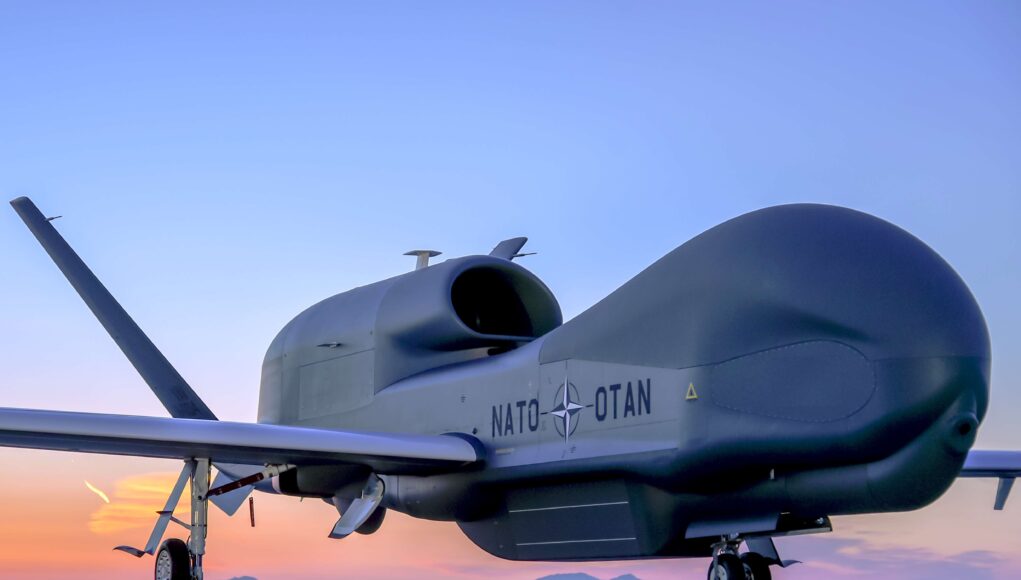

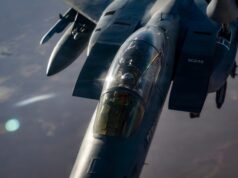
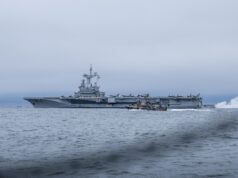
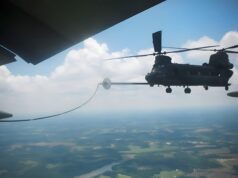
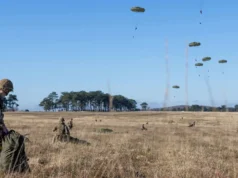




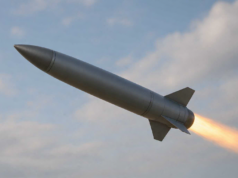

Half of germanys 400bn fund (which is labeled infrastructure spending, not defense) has been earmarked to green and climate change. They aren’t a serious group of people anymore.
Oh my god. You mean Germany is spending an infrastructure found on infrastructure!?!? THE HORROR.
I just started 3 weeks ago this web income system that my friend recommended to me and I’ve gotten 2 checks for a total of $9,200…this is the best decision I made in a long time! This extra cash has changed my life in so many ways, thank you!”
HERE_____ 𝐖𝐖𝐖.𝐇𝐈𝐆𝐇𝐏𝐑𝐎𝐅𝐈𝐓𝟏.𝐂𝐎𝐌
Everybody can earn 250$+ daily… You can earn from 10000-15000 a month or even more if you work as a full time job…It’s easy, just follow instructions on this page, read it carefully from start to finish… It’s a flexible job but a good earning opportunity..
go to this site home tab for more detail thank you…… 𝐖𝐖𝐖.𝐍𝐄𝐓𝐏𝐀𝐘𝟏.𝐂𝐎𝐌
Good
Everybody can earn 250$+ daily… You can earn from 10000-15000 a month or even more if you work as a full time job…It’s easy, just follow instructions on this page, read it carefully from start to finish… It’s a flexible job but a good earning opportunity..
go to this site home tab for more
detail thank you… 𝐖𝐰𝐰.𝐖𝐨𝐫𝐤𝐬𝐩𝐫𝐨𝐟𝐢𝐭𝟏.𝐨𝐧𝐥𝐢𝐧𝐞/
Go to my web site to earn €250 an hour😂😝
Google pay 92 every hour my last check was 8400 working 10 hours per week on the web. My more youthful sibling companion has been averaging 18k throughout recent months and he works around 24 hours per week. I cannot accept how simple it was once I attempted it out.This is my main thing……….,.,.,.. WORKSTAR1.COM
Hopefully the Baltic countries will lead Europe to more defined position on Russia. Looking back we had Obama not so interested in Europe and merkal who tried to court Russia which failed. And Russia has always played these games through history, they see bordering countries as their backyard.
Merkel didn’t court Russia, she simply kept the ship of state on cordial business relations. It was Gert, Der Gasprompolitiker, widely seen as a Russian asset, who actively courted Russian business.
Perhaps this should be seen as an opportunity rather than a problem. Throughout the cold war, the USSR, in control of the resources of East Germany, Poland, Czechoslovakia, Hungary, Romania, Bulgaria and Albania represented a real and powerful threat to Western Europe that needed US presence to build the most effective deterrent counter force.
Today, Russia’s population is half that of the USSR, and the former Warsaw pact countries are NATO members. Europe should not need US presence for effective deterrence, apart from nuclear weapons. The combined populations and economies of E-NATO countries vastly exceed those of Russia. Modest increases in defence budgets would be sufficient to rebuild conventional strength; bigger investment might be needed to make a European only nuclear deterrent wholly effective.
A process to reorganize E- NATO, so that it can function without US involvement, should start as soon as possible, perhaps under a new treaty that restates the commitment to collective defence.
500 million Europeans are facing 120million Russians. The issues are all about fragmented EU militaries and reliance on US leadership and materiel. Part of the problem is the US wants its cake and to eat it too.
It wants a fragmented Europe, spending 3-5% of its GDP on American MIC exports, not a potential strategic competitor with its own powerful MIC.
The US issue shouldn’t even be an issue, Europe should never have become reliant on the US for its security and has the most to gain from regaining its security independence, it has the mass and economic power to do so, it just lacks the political will. You can’t be independent when you rely on someone else to protect you, which then influences your economic and foreign policy, potentially not in your favour of your interests, The US should be a bonus, not a necessity.
Fragmentation of European countries force structures shouldn’t be too much of an issue provided all countries have sufficient mass and can fully equip forces and provide the necessary logistics to support them, rather than rely on other countries for this. Any independent country (even as part of the EU) will always want balanced forces to protect their own country first and foremost which makes it difficult to get countries to specialise on specific areas.
It is important for Europe to regain strategic and industrial independence to properly regain the ability to defend itself independently. There is the opportunity to greatly increase home defence industries to benefit from increased funding for defence, improving resilience whilst creating jobs at home and keeping the money within their own economies.
Very late reply – It’s about time Europe including UK fought there own battles – I don’t agree they can’t. Russia notdone so well against Ukraine Europe (Not EU_ should be spening 4% on defenc – But ven so a combined Europe would be no push over for Russia/
Peter, don’t you think that the UK and French nuclear deterrents constitute a deterrent to Putin not to wage nuclear war or war with overwhelming conventional forces against a western European or NATO country? ie. maybe it doesn’t matter to us if Trump did not line up his nuclear weapons against Russia’s?
Today there is doubt whether Trump would authorise the release of their nuclear weapons earmarked for Germany and other NATO Countries. if Germany or the others asked for them! This no longer constitutes a deterrent, as you don’t know which way Trump’s administration will blow if NATO was attacked by Russia. Would they hesitate, or just say no? Whichever is decided it will be a win for Russia.
Although the UK has committed the CASD to NATO, would a British PM authorise a nuclear strike in retaliation for an attack on a Baltic state? France has not made the same commitment. The MAD doctrine really requires an equality of risk to be wholly effective. At the moment, only the USA can deliver that effectiveness, so an increase in European nuclear weapons might be needed together with a kmore explicit commitment from France. The problem with article 5 has always been that the extent of any action is left to each member country to decide.
Mentioned here a while back part of the problem over Europeans stepping up was in part something the US has responsibilities for too beyond the naive peace dividend that pushed European politicians into the post Soviet complacency and ‘head in sand’ attitude. And ironically I came across a German commentator who took a similar line pointing out 4 occurrences where the US has stymied Europeans committing more. Can’t remember it all but one was the American determination to always exercise use control that they always were and still are the decision maker with the rest of us as mere supplicants to their plan. This has led to the reliance that they now so criticising because in the end they became accepting that in any conflict it would effectively be the US against whoever they dictate with the rest doing as they are told. As we see with Ukraine they want that one to one strategy so inevitably the rest become less invested in any sense of power until the wake up call comes and that leader changes tack even if it still effectively wants all the power but less of the responsibility.
One of the other points (and reflects the above) on at least two occasions Europeans sought to become more united and build a more independent military force or structures. The EU tried to unite under a European defence structure early on and the US pushed back strongly creating disunity and it never progressed beyond the paper. Then the French more recently tried to push the idea of a European army and the US gave very mixed messages about it depending on the Presidency and fears of encouraging US disengagement with Britain in particular so opposed stymied that too.
There were two other issues he pointed out but can’t remember them though certainly he pointed out how the post war Super Power state of the World and a broken Europe inevitably led to the instilling of the ‘US Exceptionism’ and hegemony as displayed during the Suez crisis pretty much knocked any sense of free will from Europeans with Britain and France reduced to ineffectual onlookers as the US and Russia rebuilt the World without and reference to them and in an air of hypocrisy. When you feel stripped of power and influence so completely you tend to ether fight back or feel it’s better to spend money on things you can control especially with your electorate. No room for that now but uniting and agreeing how to re-fill the void the US actually psychologically encouraged for so long is the problem.
Yep, the US effectively emasculated Europe after WW2. It actually (I think) did so to try and ensure it would never have to fight there again. But FDR and then Truman deliberately threw the UK under the bus towards the end of WW2.
FDR undermined Churchill twice publicly. Once when they insisted on a communique talking about “Self-Determination of ALL peoples” – ie the British Empire would end when the war ended. And the second time at Yalta when he curried favour with Stalin by humiliating Churchill over his drinking habits (when Churchill refused to agree to Stalin’s proposal to execute tens of thousands of German prisoners).
And as you bring up; Suez essentially ended any notion of Britain and France being true world superpowers.
Bob, I don’t think many in austerity Britain in 1956 which was also rapidly dismantling the Empire thought we were a superpower soon before ‘Suez’.
Yup. The US wants followers that spend Super Power levels of cash on defence, but still follow their lead. That’s not a realistic aspiration.
Bureaucracy is part of the problem. Long, expensive and drawn out procurement processes as a result of too many people with too little to do; and increasing anti fraud legislation creating barriers to quick purchases. UORs have given us a glimpse of what is possible when these barriers are reduced. And on the other hand, the long wait for the SDSR due this year before anything can be announced or enacted.
Virtually all western defense industry is private too, and private busineses have little appetite for taking risks these days without some sort of government underwriting. Look at Harland and Wolff; basically went bankrupt employing extra people gearing up for the government contract, and then labour pulled the rug by refusing to guarantee their financing loan. Yes another buyer came along, but the original owners took a huge loss. So why would other businesses put themselves out there when the government won’t support them? They simply won’t, they’ll be ultra cautious and slow until the money is on the table.
Perhaps this an opportunity rather than a problem. Before the collapse of the USSR, the Warsaw pact had a population of 360m, vast land forces deployed a few miles from the West German border, a large modern airforce and a powerful navy both surface and submarine. To offer effective deterrence, NATO neede US presence both conventional and nuclear. Today Russias population is about the same as Germany plus Poland, its former satellites are now NATO members. E NATO countries greatly outnumber Russia-in population and economy. Most Russian equipment is provably inferior. Only in nuclear weapons does Russia still pose a major threat to Europe.
Modest increases in defence budgets, already under way by many members should be sufficient to deter Russia without US support, at least in conventional forces. Only a build up of European nuclear capability would require a major increase in funding.
If the USA wants Europe to be more self sufficient in defence , it can be done. A reiteration of the mutual defence pact, with or without US participation, is eminently possible.
You will need massive investments in enablers too in order to replace US involvement. This is doable but European taxpayers need to accept increasing defence spendings, probably north of 3 % of GDP.
Not necessarily. Europe already spends about 280billion usd per anum on defence. More efficient spending allocation and investment in more domestic production would help.
The other issue is US involvement is in Europe is largely a staging op for its middle east adventures, and a lot of US enablers here are for that (eg the US air refuellers here are mainly for aircraft flying from the US to the Middle East or Indian Ocean). European forces operating in Europe don’t need quite the same scale of support, unless we are planning on storming ashore in Lybia.
Good points Dern. However replacing US intelligence (satellites etc) is rather expensive although doable.
Everybody can earn 250$+ daily… You can earn from 10000-15000 a month or even more if you work as a full time job…It’s easy, just follow instructions on this page, read it carefully from start to finish… It’s a flexible job but a good earning opportunity..
go to this site home tab for more detail thank you…… 𝐖𝐖𝐖.𝐍𝐄𝐓𝐏𝐀𝐘𝟏.𝐂𝐎𝐌
Initial comment disappeared with a fail message, hence the double response
The tendency to demonise Trump is not particularly helpful in this context- US defence spending is at around 3.4% of GDP, so to match that proportionate spend we would need to increase our budget by about £30 billion pa. Unless and until we do so, the US will quite rightly argue that we are not properly pulling our weight in this alliance. Various talking heads would argue that this is unaffordable, but notably, Poland is now spending nearly 5% of its wealth on defence despite suffering the same demographic problems that we are. It’s merely a question of priorities.
Agreed. But notably Poland isn’t crippled by an unsustainable welfare system exacerbated by mass immigration of populations who are much more likely to use this system. A decreasing population reduces the tax base yes, but means that they don’t have to spend billions on building new infrastructure to cope with an increasing population.
Ideally the UK, and all countries for that matter (western or otherwise), would achieve net zero immigration levels with a stable TFR of around 2. Demographic pressures on resources are play a huge part in conflicts around the globe. East Asia’s economic surge was largely a result of getting it’s demographics under control (although we’d want countries to steer clear of China’s enforced one child policy and forced sterilisations). India, Bangladesh, Brazil are good examples of orderly but fairly rapid demographic transitions. Go too far though and you end up with South Korean problems, generations only being 40% of the size of previous generations with a TFR of around 0.8. That would make national borrowing almost impossible.
I’d say bullshit. The US defence spend is to project American power world wide, while ours is wholly committed to NATO.
I wouldn’t say ours is wholly committed to NATO, nor should it be. But I agree that their forces are more expeditionary, partly due to their geography and partly due to their nature as a superpower (for most of the cold war are large element of their defence posture was to rapidly re-enforce western Europe against a Warsaw pack invasion).
Europe needs to adjust to the fact that it is no longer the economic world centre, which is shifting rapidly eastward. It isn’t a snub for America to refocus to the Pacific theatre, and expect europe to pay for its own defence, it’s completely and utterly logical. And it makes sense for the UK to maintain the ability to project power into this new economic centre, via the carriers as demonstrated by operation high mast.
Russia is a threat of course, but nowhere near what it was. It has shown itself to be a bit of a paper tiger, although we shouldn’t get complacent.
We in the UK and Europe must realise that Russia is not the only threat to liberty in the world, although it is the biggest threat to us.
It is a bit selfish for Europe, after years of underinvestment in defence and repeated calls from the US to up expenditure, to expect the US to should most of the burden in Ukraine. The Ukranians have fought bravely and we empathise with their plight, but they aren’t in NATO, and for good reason(s). We must support them, but we must also recognise the cost of doing so and try to curb that. When Taiwan and other nations in the south china seas are under threat from China, what is Europe contributing to their defence? As one of the richest regions in the world that preaches the importance of protecting liberty and sovereignty I think we should be capable of doing more, and more vocal.
At the moment all I really hear from most in the european political centre is European isolationism, whilst simultaneously complaining about an increasingly isolationist USA. We need to recognise our own hypocrisy whilst also steering the USA in the right direction. At the minute the USA has little respect for our opinions, we have lost influence, because we’ve weakened ourselves massively for (sometimes weak) social causes, and because of our own political hostility to them.
We nor China can win a trade war with USA. Their economy is too large, not dependent on exports (which is why tariffs hurt others more than them), and largely self sufficient with energy and most natural resources. Neither will we be able to convince sufficient other countries to join in -which is the only way I see America losing a trade war (if it was them against everyone) – too many are dependent on the US for other reasons.
It’s a bit more complicated than who imports more or exports more.. the U.S. is going to struggle a lot more than you think for a number of reasons..
1) the U.S. is a massive importer.. slapping tariffs massively harms domestic markets and businesses.
2) china is a communist state..it can tell its population to shut up and take the pain and the population have been conditioned to accept.
3) the U.S. is a democratic state..the population are not going to be willing to suffer for a trade war..as soon has they get a chance to vote if they have been hurt they will start changing the political landscape.
4) supply chain and raw materials..china controls or has gained control and stockpiles a lot of the rare elements needed for modern production… it can and will simply withhold those from US manufacturing.
5) debt..Chinese national debt is mainly owned by china companies and banks all of which are..you guessed it controlled by the Chinese communist part..US debt is owned by external nations and private holders..the second largest being china.. China dumps its treasuries 800billion in U.S. treasures the bond market starts to fail…we saw this with japan just starting to do that when it got pissed a couple of weeks ago..
Finally people forget..china is actually seriously planning a war in the western pacific..it starts to have less to loss if there is already a trade war..,
This is such a key point Dern that, that Trump and chums ignore and we in Europe are too timid to raise.
The majority of US defence spend has little to do with contributing to NATO Europe, it’s going to the Pacific fleet and Pacific allies, worldwide US operations and, for domestic political reasons, Israel. With 100,000 US service personnel in Europe, however welcome, they are a comparatively small player in peacetime
As you say, a lot of these folks are here to facilitate US operations elsewhere, so just using European bases as staging posts.
That said, a lot of their European deployments are very valuable to ENATO – F35s and F16s in UK and elsewhere, US troops in Germany, Poland, Romania, AWACS in Germany etc And US troops doing most of the heavy lifting in NATO’s back yard in the ME and Africa. And of course satellites and the nuclear umbrella.
Overall, the US is not a big military player in Europe and we have let ourselves become far too dependent on.US foreign policy, equipmemt and political whims.
This is a very one sided view of what NATO is for. Your argument assumes that NATO is, and is supposed to be, a one way street – the US protecting Europe. The majority of European defence spending has little to do with protecting NATO North America. What is the moral case for the c300m people of the United States continuing to subsidise the defence of the c500m people of non-Russian Europe, and Europe not reciprocating?
And I would caution against saying that the United States is not a major military player in Europe. In terms of fast jet squadrons alone they have three F16 squadrons (two in Italy and one in Germany), and the two F35 squadrons and two F15E squadrons at RAF Lakenheath. Not to mention the force multiplier assets (AWACS, tankers, heavy life transports, ELINT etc) based at RAF Mildenhall, Ramstein airbase and elsewhere. The 100,000 personnell in Europe are supported by at least an equal number based elsewhere, and so the proportion of the US military supporting European defence is probably higher than you think.
Everybody can earn 250$+ daily… You can earn from 10000-15000 a month or even more if you work as a full time job…It’s easy, just follow instructions on this page, read it carefully from start to finish… It’s a flexible job but a good earning opportunity..
go to this site home tab for more detail thank you…… 𝐖𝐖𝐖.𝐍𝐄𝐓𝐏𝐀𝐘𝟏.𝐂𝐎𝐌
Ian, the US spends a heck of a lot on Defence because they are the world’s only superpower. They need to have strength in all parts of the world, whereas we don’t. I wonder what they spend solely on NATO endeavours. It may only be 2 – 2.5%.
They also spend a lot because of waste of money: bolts can be 45 $ each.
I think we can compete with them on that. They seem to get more bang for their buck than us. I think they spend about 10 times more than us, but get about 15-20 times the force output.
Economies of scale are obviously a factor, but I think we need to be careful about lazy assumptions of widespread waste based on anecdotal information.
It would be more appropriate for us to compare ourselves to similar European countries like France, Germany and Italy.
Italy spends about half as much as us, has a bigger navy, bigger army, and under current plans will have bigger Typhoon and F35 fleets than us. Yes, of course they lack many of our niche capabilities, and don’t have to support a nuclear deterrent. But I think there are lessons that we can learn from our European allies.
One of the core issues is the US set up NATO to be controlled by the US, it’s essentially always been an unequal partnership, but the US set and enforced the terms they are now objecting to.
I think the writer of the article, was very clear in the issue of not having a US commander of NATO but these are structural issues in NATO set in place by the U.S.
So I don’t think the core question is “why it matters if an American no longer commands NATO” the question should actually be “ how does Europe make it irrelevant if an American does not command NATO”.
I honestly don’t think NATO can rebuild itself and I think you will see a separate European/high north defence treaty ( EU, UK, Norway, Iceland, Canada) , with possibly a EU, UK, US wider and lighter treaty about shared interest in Africa, south Atlantic and Indian occean.
The big issue is that the US have created the structures that made it impossible for NATO to function without US leadership, but no longer wish to lead NATO.…and even if it changed its mind and wanted to keep leading, the other NATO countries have lost all faith and trust in the US as a stable leader…that is the existential question for NATO.. not discussions of percentages of who pays what.
I’m honestly not sure NATO can get over that existential question as US leadership is hardwired into the very fabric of the NATO treaty..in case of fact NATO cannot function without US leadership as a number of the articles specify require it. I think the European NATOs know this and therefore NATO is now simply a placeholder until a new treaty organisation can be created. Structurally I think it’s doomed..
Jonathan, the US alone did not set up NATO. The UK and France set up its forerunner In 1947, when they signed the Treaty of Dunkirk. The Treaty of Dunkirk was expanded in 1948 with the Treaty of Brussels to add the three Benelux countries and committed them to collective defense against an armed attack for fifty years.
In 1949, the NATO defensive pact was signed by twelve countries on both sides of the North Atlantic – the five Brussels signatories, the United States, Canada, Italy, Portugal, Norway, Denmark, and Iceland.
The US did not set up NATO – it and its predecessor organisations wasn’t even a US idea.
How has the US ‘rigged’ NATO to have the high degree of control you say it had and has? Its HQ has always been in Europe and its SG has always been a European. The North Atlantic Council (NAC) is the principal political decision-making body of the North Atlantic Treaty Organization (NATO), consisting of permanent representatives of its member countries – chaired by the European SG.
Granted that SACEUR has always been American (with a British Deputy), but several other commands are headed by non-US senior officers.
The current Chair of the NATO Military Committee is an Italian – Admiral Giuseppe Cavo Dragone, former Chief of the Defence Staff of Italy. ie, not currently an American officer.
Hi graham, slightly different mean, I said the US set up NATO to be controlled by the US, not the U.S. alone set up NATO.. essentially the geopolitical reality of the time meant that the U.S. could get its own way and it did, France and the UK and the other European nations were in no place to argue..article five is very much a creation of the U.S., the UK and other European nations did not want such a lack of commitment article.. but the US would give nothing else and not guarantee any response.all the core articles around management of NATO are all tied into requirements to go through Washington..this was purposeful.. essentially NATO as a treaty cannot function without the US as a number of core articles would stop functioning and all the treaty paperwork is managed in Washington.
if you read through the exact wording and working of a number of the core articles, it requires actions to be undertaken by Washington and for NATO members to deposit agreements with the US government in Washington..essentially if the U.S. walks away from the leadership of NATO the treaty stops working and needs a complete rewrite..
The U.S.A. created N.A.T.O. to have control of ‘Free Europe’ in the post 1945 world, not the other way around. Enormous sums have been paid to U.S. armaments and technology companies during that time by European countries. In most cases these bought weapons that fitted U.S. war fighting plans, controlled and supplemented by Washington as and when. The U.S. Supreme Commander of N.A.T.O. was not a figurehead. All of this was to the advantage of the U.S.A.
Today is a different world politically, militarily and technologically – indeed, bears no resemblance to that of the 1950s at all. The financial position today of the U.S.A. is not the result of European negligence. Pressures on the U.S.A. are domestic, not European. It can no longer pay the bills of its creation nor wishes to do so.
The period 1945 to 2025 will be seen as an interlude in the historic attitude of the U.S.A. towards Europe. Today that attitude, that never went away outside the confines of Washington, has resumed to take its old place centre stage. America First is not a recent concept for those seeking political power in the United States. An era in European history has ended and the future of Europe, whatever that means, is today as it had been for centuries prior to the creation of Congress of Vienna.
Barry, I guess you are American as you have an American view of history.
The U.S.A. did not create NATO – why on earth did you think that it did?
The U.S.A. has not had ‘control’ of Free Europe’ – we are all sovereign nations. Sorry to disappoint you!
A problem caused by a cheap, vapid European political class trying to be solved by a cheap, vapid European class. What could possibly go wrong?
Somehow Europe had large, effective militaries until the collapse of the Soviet Union. Now they don’t. Why was that? The peace dividend. Complain about the Americans all you like, but nothing will change the fact that Europe gutted their militaries to pay for overly generous social schemes. All safe in the knowledge that the Americans would ride to the rescue in the event it hits the fan. I don’t agree with how Trump is going about this, but he sure does have a point.
To be fair Europe has two possibly three major issues in its struggle to reajust to the current situation. Yes I agree that European nations have dropped the ball on defence over the last three decades. However, its current situation is a bit like what do we do next and what does the future look like.
So issue 1 is that Most of Europe looks at most things through the collective eye of the EU but two major European nations are not in the EU, the UK and Norway. Yes Norway does bring some major capabilities to the defence table. So for a collective European defence the UK and Norway must be included, but the’re not EU so have no acsess to EU funding or programs. You see the point. The second issue is what are the requirements of a European defence pact, what will the US put on the table and what is the politicial picture in 5-10 years. Will the US stop intel sharing, Sat Com, will that have an air wing in Europe or nothing. Basically what or where do the Europeans need to put their money now and waht could or can wait 10 years. Then comes the final issue that the US has not thought about. If the US says that in 5-10 years there will be only a limited involvement of the US in Europe the Europe would have to go it alone. This is where things get intresting, technically there is nothing that can be built or designed that cannot be done in Europe. In some cases the Europeans are ahead of the Americans but you also have the reverse. However, the combined population of the US vs the EU gives the manpopwer advantage to Europe, purchasing power is almost the same, yes the US has a higher GDP than the EU by about 50%. Yet public debt as a % of GDP gives the US 121% and the EU 82.7%. The EU has some wiggle room the US if it was a company would be seen as bankrupt. Also remember this does not include the UK and Norway for EU figures.
So if the Europeans could get together to form a collective defence pact and a buy only European designs what the US could face is a third superpower, Europe. Wwould the Americans be happy with this? I am not sure Europe. It all depends on how France operates if it is for a European pact, work share etc it could work. If France plays only for France then a European defence pact will never get of the ground. Which then means that the potential of cloective buying power disappears, which in turn means less bang for a nations buck but more profit for the defence companies.
Like them or loathe them, Turkey is another major non-EU, European country with a disproportionate military influence. We can’t afford to exclude them as that just encourages them to keep hedging their bets. Ironically, Europe disparaged them for buying the S400 when they couldn’t get a decent deal on Patriot, and for breaking ranks over Sweden/Finland, but now it’s core Europe that’s been shafted by the US and we are following Turkey down the same road of self reliance and being a little less trusting.
I always love to see/read how “France is bad” while the UK, Germany, and everyone else are just doing exactly the same thing.
It’s just that France, having a larger spectrum of defense industries and more independence, is naturally more sensitive on this topic than the rest of Europe.
You are funny. I don’t know how to translate into English the exact words I would use in French, but arrogance and hypocrisy are definitely not exclusively French traits.
Still it could be worse, at least the MoD is not installing a new ‘Make Up Room’ to allow the Defence Secretary to do his own make up. You could not make it up, but the Pentagon sees the need